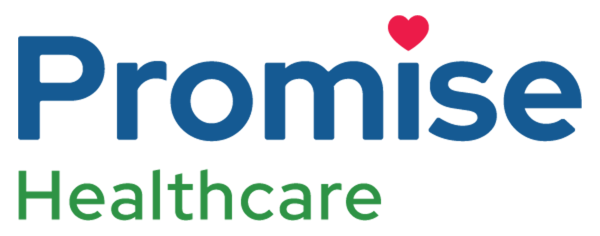Prenatal care is essential for a healthy pregnancy and a strong start for your baby. Our expert team is here to provide you with the support, guidance, and care you need every step of the way. Together, we'll ensure both you and your baby stay healthy and happy throughout this exciting journey.
Why is Prenatal Important?
Prenatal care is crucial for the health of both you and your baby. Regular check-ups help monitor your baby's development, detect potential health issues early,
and ensure you receive the proper nutrition and care. With the right prenatal care, you can reduce risks, manage complications, and give your baby the healthiest start possible.
Improving Maternal & Women’s Health Outcomes:
Women face unique health challenges throughout life, but for many, those challenges are made harder by gaps in access, delayed diagnoses,
and care that doesn’t reflect the full picture of their lives. In Illinois, maternal and infant mortality remain unacceptably high, especially among women of color and underserved
communities. But the solution starts earlier—and goes further. At Promise Healthcare, we take a lifespan approach to women’s care, addressing not just pregnancy, but the health of
each woman before, during, and long after. We focus on prevention, early engagement, emotional and physical wellness, and personalized care every step of the way. Families thrive when women
are supported at every stage, and communities strengthen.
Labor & Delivery Preparation
What to Expect as You Near Your Due Date.
Common signs that you are going into labor include:
- Contractions (Every 5 minutes to 1 hour)
- Water Breaking
- Pelvic Pressure
- Changes in Discharge
Creating A Birth Plan
The weeks leading up to delivery, it is helpful to create an outline of your labor preferences, including pain relief options, labor environment, delivery preferences, and
post-labor preferences. Addressing these variables prior to the day of delivery may alleviate some stress.
Post-Delivery Care and Support
After delivery, monitoring your health, managing physical recovery, breastfeeding support, and addressing mental health needs are crucial. Your
baby will have checkups and bonding time, and support from family or a postpartum group can be helpful as you adjust to life at home.
Nutrition & Lifestyle During Pregnancy
Balanced Diet and Hydration
A well-rounded diet is essential for both maternal health and fetal development. Ensure that you are getting these vital nutrients into your diet:
- Folic Acid
- Iron
- Calcium
- Omega-3 Fatty Acids
Staying hydrated prevents common pregnancy issues such as constipation and swelling.
Exercise and Physical Activity
Consult with your provider before implementing an exercise regime into your daily life. Low-impact exercises such as walking, swimming, and yoga have been proven to have many health benefits
for expecting mothers. Avoid activities with a high risk of falls or other injuries.
Mental and Emotional Wellness
Self-care and prioritizing your mental health is crucial during pregnancy. Seek emotional support from friends, family, or healthcare professionals if you feel there is an issue that is
impeding on your health.
Medical Services Providers

Job Position: Chief Medical Officer

Job Position: Assistant Medical Director

Job Position: Pediatric Nurse Practitioner

Job Position: Family Doctor

Job Position: Family Nurse Practitioner

Job Position: Family Nurse Practitioner

Job Position: Family Nurse Practitioner

Job Position: Physician Assistant

Job Position: Adult-Gerontology Nurse Practitioner

Job Position: Family Nurse Practitioner

Job Position: Family Nurse Practioner

Melonie Richardson
MSN, APRN-FPA, FNP-BC
Chief Medical Officer
Melonie graduated from the University of Illinois at Urbana-Champaign and has been working in medicine since 1994 and as a nurse practitioner, focusing on Family Practice, since 2003.
Melonie sees patients of all ages at Promise-Healthcare Frances Nelson.
Melonie is excited to provide primary care to her patients and enjoys learning from them. She wants to be able to help guide a patient’s health so they can have the wealth of wealthy and the happiness that hope brings.
When Melonie is not at work, you will find her outside, listening to all types of music and spending time with her family, her pet turtle, her chickens, and her little dog.
Melonie also enjoys volunteering and giving back to her community.

Shelly Tangen
MSN, APRN-FPA, FNP-BC
Assistant Medical Director
Shelly received her education from the University of Illinois.
Shelly sees patients of all ages at Promise Healthcare - Frances Nelson.
She started her nursing career in 1993 but took some time off to raise her daughters. She returned to school to become an NP (Nurse Practitioner) and graduated in 2016. She started at Promise Healthcare in 2017.
Shelly is passionate about caring for the community and ensuring that patients receive the care they deserve and get the help they need. She encourages patients to advocate for their healthcare, ask questions, and do research because they will never be disappointed in taking care of their health.
In her free time, Shelly enjoys spending time with her spouse of 24 years, her three children, and her puppy. She is active in the community and supports CUPHD (Champaign Urbana Public Health District) and Daily Bread Soup Kitchen. Her daughters started Project Warmth to collect winter coats and donate them to patients at the Frances Nelson Clinic.

Jenny Daab
APRN, CPNP
Pediatric Nurse Practitioner
Jenny earned degrees from Indiana University- Purdue University at Indianapolis, and the University of Illinois at Chicago.
She has been a Pediatric Nurse Practitioner at the Promise Healthcare Urbana School Health Center since 2013 and specializes in health education and preventative care for patients from 3 to 18.
She enjoys teaching young patients the habits and daily patterns that will lead to healthier lifestyles and long-term wellness, and she is passionate about finding ways to inspire her patients to get active outdoors.
Jenny encourages parents and children to get outside any time they can to take advantage of outdoor play's many mental and physical health benefits.
Jenny is an avid nature lover who likes to hike, kayak, and read in her spare time. She is married and has two teenagers and a dog.
She gives back to the community by volunteering for the Upper Sangamon River Conservancy, which cleans the Sangamon River and the roadways around it of trash to prevent it from ending up in the river.

Stephen Cambalik
MD, MPH
Family Doctor
Dr. Stephen Cambalik earned his undergraduate degree in Bioengineering Premedical from the University of California, San Diego, and completed medical school at Universidad Autonoma de Guadalajara in Jalisco, Mexico. He later received his Master of Public Health in Health Policy and Management from New York Medical College.
With over 14 years of experience providing care to patients of all ages, Dr. Cambalik has a special interest in community health, preventive care, and lifestyle medicine. He is passionate about facilitating healing and wellness and seeing the positive ripple effect it can have in the community.
Dr. Cambalik is committed to offering compassionate, comprehensive care for everyone. He encourages patients to understand their overall health and recognize the value of their intrinsic humanity in order to grow and flourish.
Outside of work, Dr. Cambalik enjoys baking, cooking, gardening, knitting, and reading. An amateur beekeeper, he also treasures time with his wife, their two children, and three cats. He is active in supporting local libraries and parks and looks forward to caring for patients and their families at Promise Healthcare.

Alanna Adams
FNP-C
Family Nurse Practitioner
Alanna sees patients of all ages at Promise Healthcare - Frances Nelson.
Alanna earned her associate's degree at Parkland College, her Bachelor of Science in Nursing, and her Master of Science in Nursing at Walden University. A provider, Alanna knows she impacts people's well-being and improves their health. She wants to work with her patients and encourage them to choose healthcare options that fit their lifestyles.
“Little changes can make a big difference" in your overall health.”
Alana loves movies, reading, and traveling in her spare time.

Marilyn Perez
MSN, APRN, FNP-C
Family Nurse Practitioner
Marilyn Perez received an associate’s degree in nursing at Parkland College. She then earned her Bachelor of Science in nursing at Purdue University and her Master's in nursing at Illinois State University.
Marilyn sees patients of all ages at the Promise Healthcare – Frances Nelson location.
Marilyn is passionate about educating her patients on conventional and complementary healing practices that emphasize self-care, nutrition, exercise, and mindfulness.
She encourages patients to incorporate healthy habits into daily life by eating nutritious food, daily movement, good sleeping habits, and reducing stress. These have been shown to improve/protect their physical and mental health.
When not working, Marilyn enjoys taking walks with her husband and their dog. She likes catching up on FaceTime with her daughters, who live out west, cooking, and traveling, and she likes to read at least one book per month.
Marilyn has been married for 23+ years. She has two adult daughters and a son who is a junior in high school. During the pandemic, her family also adopted a dog, Bruno.
“Patients should choose Promise Healthcare for high-quality care without having to break their bank and for the numerous services provided.”

Aicha Lengane
FNP-C
Family Nurse Practitioner
Aicha Lengane received her family nurse practitioner education at Western Governors University.
Aicha believes that as a provider, it is her duty to serve others and make a difference in their lives.
Aicha sees patients at the Promise Healthcare -Frances Nelson location.
Her vision in life is all about loving, caring, and giving from the purity of heart. She is excited to get to know her patients, and they get to know her to build trust because they can accomplish more when they have a longstanding, trusting relationship.
She believes that people should be able to be provided food and have easy access to healthcare for the people in need in the community.
Aicha grew up in a multilingual community and can speak more than five languages, including English, French, and Bambara dialects.
Aicha is married. When she is not practicing, her hobbies include traveling, cooking, walking, and reading.

Emily Street
PA-C
Physician Assistant
Emily earned her bachelor's degree in biology from Greenville University and completed her physician's assistant training at Missouri State University. During her time as a student, she gained notable experience in various specialties, including family medicine, behavioral health, women's health, surgery, internal medicine, pediatrics, and emergency medicine. Emily practices at Promise Healthcare-Frances Nelson.
Emily is particularly interested in family medicine. "It allows me to treat patients of all age groups and treat a large variety of both acute and chronic conditions" she says. Emily is truly passionate about being a part of her patients' medical journey and getting to know them over time.
Establishing a solid relationship with a trustworthy healthcare provider who will advocate for your health goals is what Emily believes is the key to improving your health. Since becoming board-certified in January of 2025, Emily is ready to serve her patients as a first-time practicing PA.
Outside of work, Emily enjoys working out, watching movies, and spending quality time with friends, family, and her three cats. She loves hearing stories about her patients' pets as well!

Meldomi Asante
AGNP-C
Adult-Gerontology Nurse Practitioner
Meldomi Asante is a board-certified Adult-Gerontology Nurse Practitioner. She completed her undergraduate studies at Bellarmine University in Louisville, Kentucky in 2008 and earned her graduate degree from Northern Kentucky University in Highland Heights in 2022.
Her clinical interests include geriatrics, chronic disease management, and diabetes care. Meldomi is especially passionate about patient education, particularly helping patients better understand and manage chronic conditions such as diabetes and hypertension. She believes that the best gift anyone can give themselves is to take care of their health.
Meldomi is fluent in English and Twi, a Ghanaian language.
Outside of her clinical work, Meldomi enjoys gardening, cooking, and spending time with family and friends. She and her husband run a food and clothing pantry through their church, Philo Road Church of Christ, which is open to both members and the local community. They also operate a nonprofit called Rural Ghana Missions, which supports people living in rural areas of Ghana by sending clothing, school supplies, and providing occasional medical screenings in partnership with local churches.“

Thair Al-Saqri
DNP, APRN, FNP-BC
Family Nurse Practitioner
Thair Al-Saqri earned his bachelor’s degree in communication before completing both his Master of Science in Nursing and his Doctor of Nursing Practice at the University of Illinois Chicago (UIC).
His clinical interests include family medicine and sports medicine, and he is passionate about caring for patients
across the lifespan. He is fluent in Arabic.
What drives Thair as a Nurse Practitioner is the opportunity to meet patients where they are and guide them toward better health. He values listening deeply, educating, and supporting individuals during moments when they may feel vulnerable or uncertain. Helping patients feel understood and empowered is the most meaningful part of his work.
Thair spent the past five years coaching boys’ and girls’ soccer at Centennial High School, and he remains committed to encouraging youth through sports and positive mentorship.
He is especially passionate about community programs and nonprofits that provide safe, supportive spaces for children.
Outside of work, Thair enjoys cheering on the Chicago Bears and Illini sports, coaching on the soccer field, and spending time with his wife and their twin daughters.
Thair has called Champaign home since 1994 and is proud to serve the community that helped shape him. His family has long been part of the local business community through owning their own restaurant, further strengthening his connection to the area.
He looks forward to giving back through compassionate and accessible care.

Cassandra Wilson
APRN
Family Nurse Practioner
Cassandra Wilson is a compassionate healthcare provider with a strong focus on whole-person wellness. She completed her nursing education at Chamberlain College
of Nursing and holds a Master’s Degree in Integrative Medicine and Aromatherapy from Maharishi University in Fairfield, Iowa. She is also a Certified Yoga Instructor, which supports her holistic, lifestyle-based approach to care. Cassandra’s clinical interests center on nutrition and exercise as foundational tools for improving and maintaining health. She is deeply passionate about teaching patients how to care for themselves through sustainable lifestyle habits and believes strongly in the principle of “letting food be your medicine.” She sees patients ages six months and older and is committed to helping individuals and families achieve better health through education, prevention, and personalized care. Patients choose Cassandra and Promise Healthcare for the caring providers and staff who prioritize compassion, respect, and accessible care for everyone. Outside of work, Cassandra enjoys spending time with her family, gardening, cooking, and practicing yoga. She is a lifelong learner of health and actively supports the Illinois Kidney Foundation.


